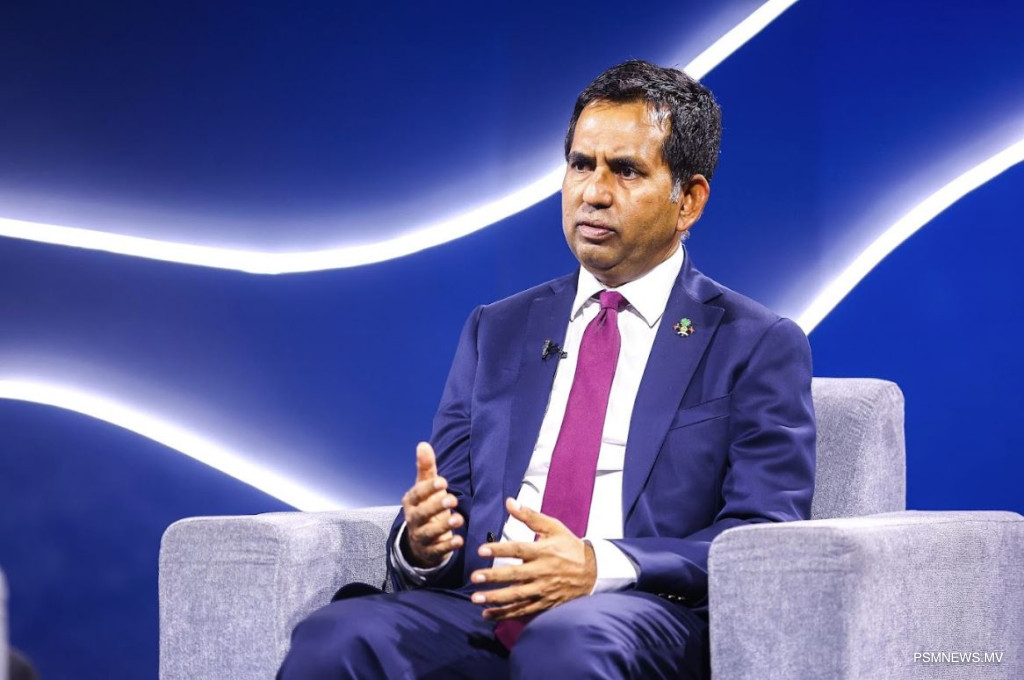
The government of President Dr Mohamed Muizzu has enacted sweeping reforms to the country’s foreign investment law, an overhaul that Minister of Economic Development and Trade Mohamed Saeed said has instilled unprecedented confidence in the nation’s business environment.
Speaking on the PSM News programme ‘Hafuthaa 104’, Minister Saeed underscored that the amendments address the stagnation of the previous Foreign Investment Act, which had remained largely unchanged for years despite significant global shifts.
Minister Saeed noted that President Muizzu had given high priority to modernising outdated statutes to align them with contemporary realities, with the explicit aim of fostering trust and certainty within the business system. He said the law has now been successfully reformed and related regulations introduced.
The revised framework, according to Minister Saeed, establishes a system recognised internationally. “We have now, God willing, implemented a system that is utilised even by highly developed nations across the world,” he said. “This is not to say that every aspect is replicated verbatim.”
The legislation offers assurances to parties seeking to invest in the Maldives while reserving specific business activities and sectors for Maldivian ownership. “A modern, transparent law that provides certainty to parties investing in the Maldives has been passed,” Minister Saeed affirmed. “Simultaneously, specific business activities reserved for Maldivians have been defined.”
Minister Saeed said the drafting and enactment of the new law were rooted in consultation, involving multiple stages of deliberation within the Business Council and analysis of practices in neighbouring countries. “When establishing this principle, extensive consultation was undertaken across a broad spectrum,” he said. “This approach has also been widely accepted. The policy was established following discussions and diverse considerations during various stages within the Business Council, which included reviewing and studying the implementation practices of neighboring countries.”
The final draft incorporated legal advice from leading lawyers in the country before being passed into law. “Furthermore, the legislation was finalised and enacted into law after receiving legal advice from top lawyers in the Maldives. Consequently, there is confidence in this law today,” Minister Saeed stated. The government has asserted that these amendments secure greater protection for foreign investors while introducing modern changes intended to foster favourable opportunities.
While the legislation seeks to assure external investors, a critical element of the reform is the strategic narrowing of investment opportunities available to foreign parties in certain sectors. These areas have been identified as domains where the capabilities and skills of Maldivian nationals are deemed sufficient and competitive.
The Economic Development Ministry noted that these sectors offer viable opportunities and strong investment capacity for Maldivian citizens. Foreign participation has therefore been restricted in key areas, including wholesale and retail trade, logistics, public maritime transport services, and bunkering services.
The reforms also introduced specific financial thresholds for reserving certain activities for local investors. These include construction projects valued at less than USD 15 million and real estate projects below USD 100 million. Minister Saeed further highlighted that the changes introduced relief measures for the construction industry and provisions to prioritise Maldivian involvement in the real estate sector.
Minister Saeed detailed a significant institutional change regarding regulatory oversight. Previously, the determination of sectors open to investment was left solely to the discretion of the Economic Minister. Under the revised framework, such decisions will now be made during Cabinet meetings that include the president. He said this change signals a higher level of governmental coordination and consensus required for defining investment sectors.
